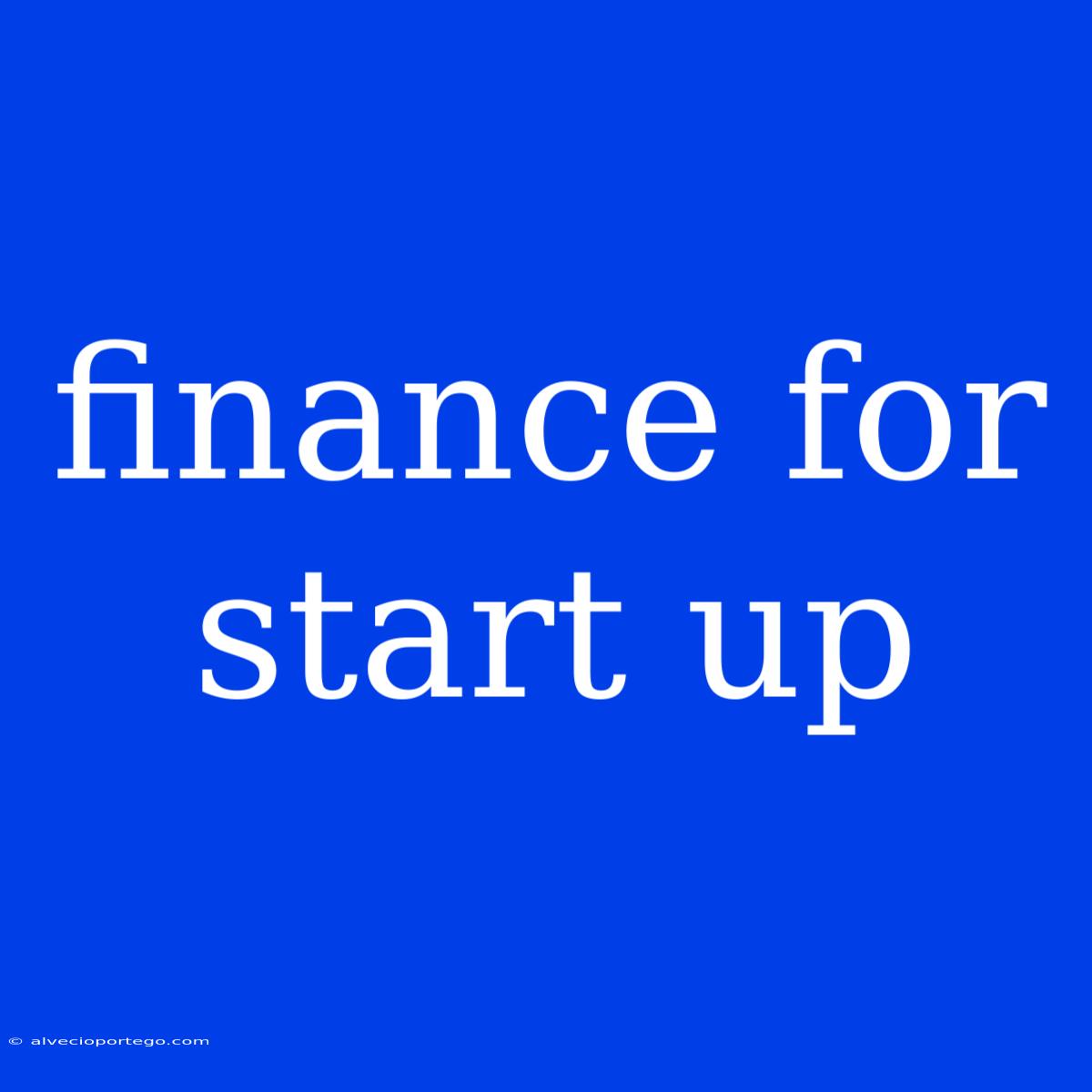Financing Your Startup: A Guide for Aspiring Entrepreneurs
Starting a business is an exciting adventure, but it also comes with financial challenges. Securing the right funding is crucial for your startup's success. This guide explores various financing options available to startups, along with insights into choosing the best fit for your needs.
Understanding Your Funding Needs
Before diving into financing options, it's vital to have a clear picture of your funding needs. Consider the following:
- Startup stage: Are you in the ideation phase, developing a prototype, or ready to launch?
- Funding purpose: Will you use the funds for research and development, marketing, hiring, or operational expenses?
- Timeline: Do you need immediate funding, or do you have time to explore different options?
- Desired equity dilution: How much control are you willing to give up in exchange for funding?
Common Startup Funding Sources
1. Bootstrapping:
- Definition: Funding your startup entirely with personal savings, credit cards, or revenue generated from early sales.
- Pros: Maintains complete control, allows for rapid iteration, and builds a strong understanding of your business's financial needs.
- Cons: Limited funding potential, slow growth, and potential for personal financial risk.
2. Angel Investors:
- Definition: High-net-worth individuals who invest in early-stage companies in exchange for equity.
- Pros: Offer valuable mentorship, industry connections, and access to their networks.
- Cons: High expectations for returns, potential for conflicting visions, and may require significant equity dilution.
3. Venture Capital (VC):
- Definition: Professional investment firms that provide funding to high-growth startups in exchange for equity.
- Pros: Significant capital injections, expertise in scaling startups, and access to a wider network.
- Cons: High expectations for returns, potential for pressure to achieve aggressive growth targets, and may require giving up significant control.
4. Seed Accelerators:
- Definition: Programs that provide funding, mentorship, and resources to early-stage startups.
- Pros: Structured support, networking opportunities, and access to industry experts.
- Cons: Short-term programs, potential for high equity dilution, and may not be suitable for all businesses.
5. Crowdfunding:
- Definition: Raising funds from a large number of individuals through online platforms.
- Pros: Engages your target audience, builds early customer base, and can validate your product or service.
- Cons: Requires significant effort to market your campaign, may not yield substantial funding, and could lead to unrealistic expectations.
6. Government Grants & Loans:
- Definition: Funding provided by government agencies to support innovation and economic development.
- Pros: Non-dilutive financing options, often come with favorable terms, and can provide a boost for startups in specific industries.
- Cons: Competitive application process, strict eligibility criteria, and may have specific reporting requirements.
7. Debt Financing:
- Definition: Borrowing funds from banks or other lenders with the obligation to repay with interest.
- Pros: Provides predictable financial obligations, preserves equity ownership, and can offer flexibility in terms.
- Cons: Higher interest rates than equity financing, can limit future fundraising options, and may require collateral.
8. Revenue-Based Financing:
- Definition: Investors provide funding based on a percentage of your company's future revenue.
- Pros: No equity dilution, flexible repayment terms, and funding based on your company's performance.
- Cons: May have higher interest rates, limited funding options for pre-revenue companies, and potential for limitations on future growth.
Choosing the Right Funding Source
The best funding source for your startup depends on several factors:
- Stage of business: Bootstrapping is suitable for early stages, while VC funding is more common for later-stage companies.
- Funding requirements: Smaller funding needs might be met through angel investors or crowdfunding, while larger investments may require VC or debt financing.
- Equity dilution: If you want to maintain control, bootstrapping, government grants, or revenue-based financing might be more suitable.
- Industry and market: Some industries attract specific types of investors, such as healthcare startups seeking medical device investors.
Building a Solid Pitch
When approaching potential investors, a compelling pitch is crucial. Ensure your pitch addresses the following:
- Problem: Clearly define the problem your startup solves.
- Solution: Explain how your product or service addresses the problem.
- Market: Demonstrate the size and potential of your target market.
- Team: Highlight the experience and expertise of your team.
- Traction: Show early signs of success, such as user growth, revenue, or partnerships.
- Financial projections: Provide realistic financial projections and explain your funding needs.
Navigating the Fundraising Journey
Securing funding is a demanding process. Prepare for:
- Multiple meetings and presentations: Be prepared to pitch your idea to numerous investors.
- Extensive due diligence: Investors will thoroughly review your business plan, financials, and team.
- Negotiation and legal agreements: Ensure clear terms and conditions before accepting any funding offer.
Conclusion
Navigating the world of startup finance can be challenging, but with careful planning and research, you can find the right funding solution to launch and grow your business. Understand your funding needs, explore various options, and build a strong pitch to secure the resources necessary for your startup's success. Remember, the right funding will not only provide capital but also open doors to valuable mentorship and connections that can propel your company forward.

